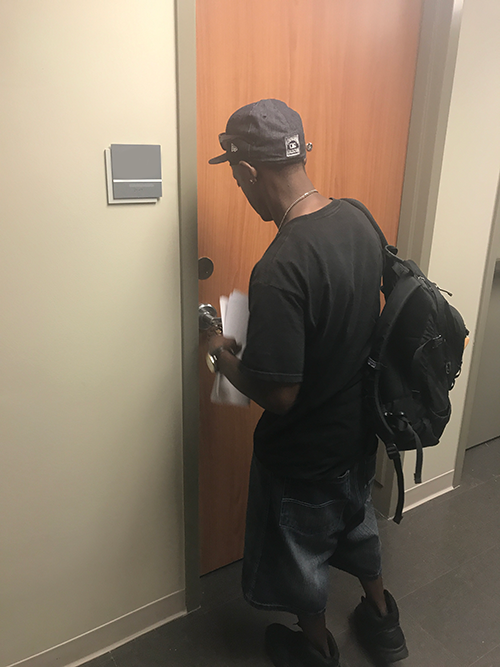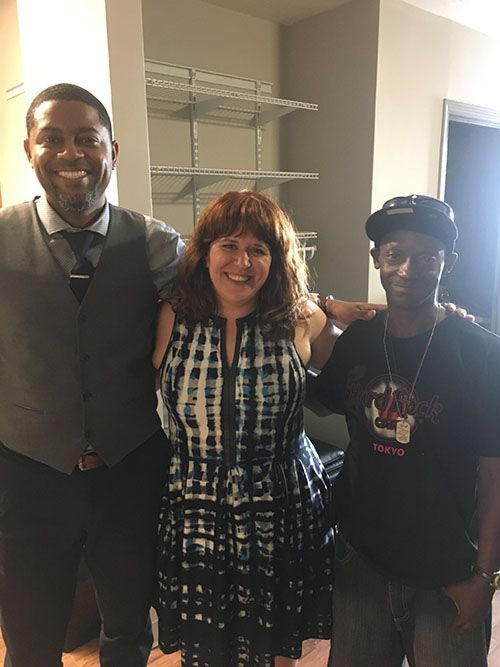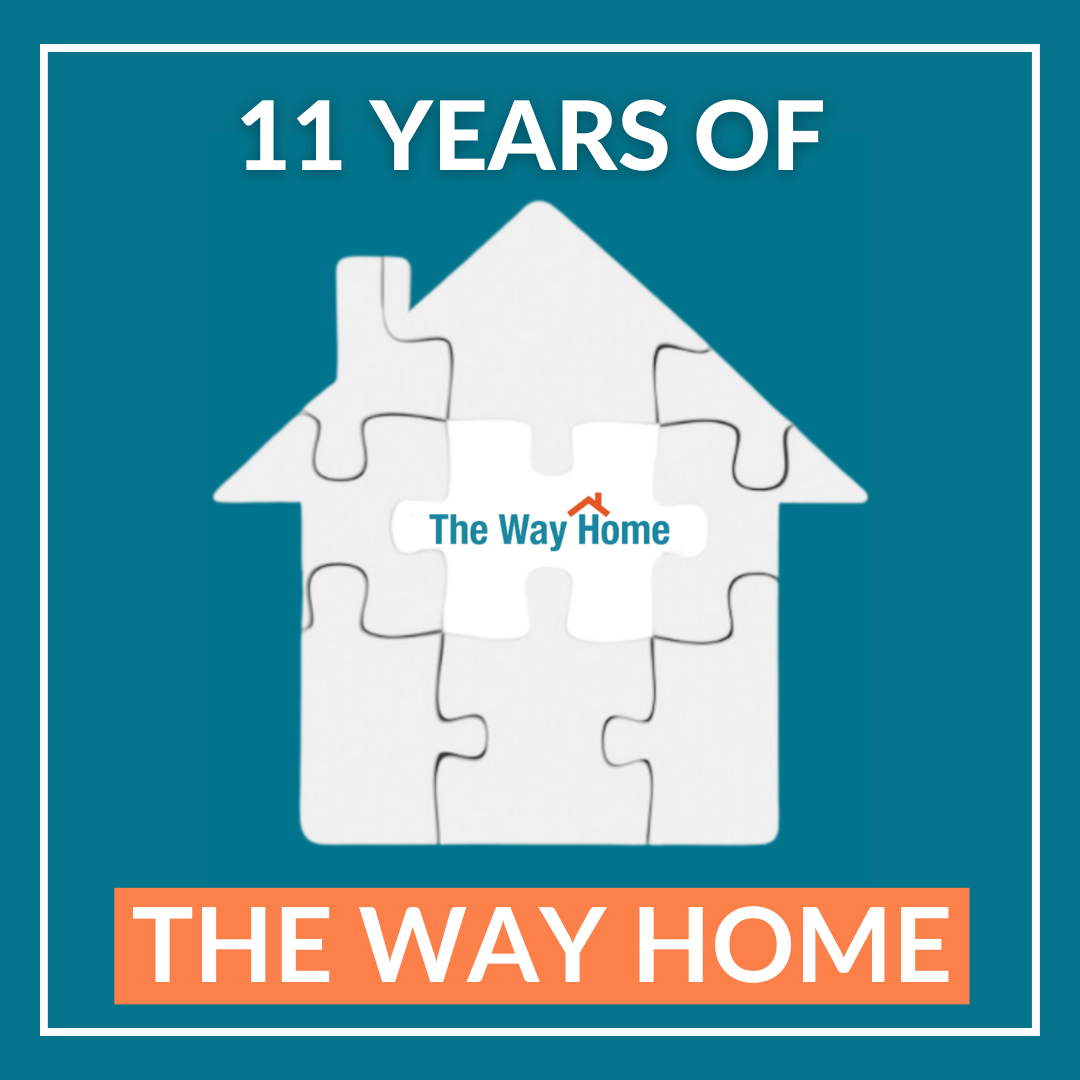Willie credits Star of Hope for helping him turn his life around. “They rescued me,” he says. While The Way Home’s “housing first” approach to ending homelessness doesn’t place requirements on housing such as sobriety, Willie decided he wanted to complete a recovery program before being housed. In early 2016, he was assessed for housing. From there, he graduated from a program at Star of Hope and then began working with Kenneth to get into an apartment.
Once a person is assessed for housing through The Way Home, they are placed on a system-wide waiting list – not in chronological order but based on a number of factors that determine how vulnerable a person is. The more vulnerable they are, the higher they are placed on the waiting list. While waiting, there are several steps, processes, and pieces of paperwork that need to be completed before moving into housing.
Identification, proof of income, proof of disability, and proof of homelessness are just some of the materials required to move into permanent housing programs. Some documents are easier to obtain than others – applicants and their Housing Navigators/case managers often find it difficult to prove they don’t have something, such as a home or income. Some homeless service organization employees like Kenneth function as Housing Navigators and help homeless individuals and families do everything they need to move into their new home. Once clients are moved in, Housing Navigators work with a Permanent Supportive Housing case manager to transition the client into their care for the long term.
When Willie arrived at Temenos Place II Apartments, the Permanent Supportive Housing complex he was moving into, he was greeted warmly by the staff, sat down to review and sign his lease, finalize his monthly payment amount, and get the keys to his new home. His new Permanent Supportive Housing case manager came to greet Willie in the lobby and set up a time to meet with him. “You find me either this afternoon or tomorrow morning – maybe around 10:00 am. And if you don’t show up, I know where you live,” she joked with a smile on her face.
During the tour, Willie’s expression showed that this was all so foreign and new to him – the computer lab, the community room, the fact that there was going to be a barbecue later that day – these were luxuries that Willie hadn’t experienced in years. “The reality of having their own place again has been nothing but a dream for these clients for so many years,” said Kenneth. “A part of them is still in disbelief, even as they are moving into their new homes.”
Willie approached his new apartment and fumbled with the key for a second before opening the door. When he stepped inside, he was greeted by a fully-furnished Single Room Occupancy (SRO) unit complete with a kitchenette, spacious bathroom, a plush bed, and even a small flat screen TV. You could see that he was appreciative, but after six years, it was an overwhelming experience. As he looked around, he quietly said, “I could get used to this.”
Willie and Kenneth locked the apartment and got back in the van; Kenneth was taking Willie to Fiesta to get a money order for the first month’s rent. Clients in Permanent Supportive Housing pay no more than 30% of their monthly income in rent and the rest is covered by subsidies through The Way Home. Clients who have no income pay nothing.
As the van rolled down the streets, Willie talked about some of the misconceptions around being homeless, sharing that no one really wants to be homeless. “Being homeless and living on those streets isn’t good,” Willie said. “It’s not good for your health, it’s not good for the soul… Most everyone out there has their issues and they’re trying to work through them. I’d like for people to know that. That we’re all out there trying.”
Since the move in a few weeks ago, Willie has been receiving regular case management and education, food pantry assistance, and has been participating in community activities planned by the Temenos staff. That is another goal of The Way Home’s permanent housing programs; to create a sense of community for individuals in their new home, as a substitute for the community they often found on the street when they were homeless. Some of Willie’s friends from his time on the streets currently live at the same complex and on Willie’s move-in day, they were already making plans to pray together.
The Way Home permanent housing programs have an impressive success rate of about 90%, so Willie has a good shot at remaining housed for the rest of his life. “We had to fight on the streets. Fight to stay alive,” he shared as he stood beside his new dining room table. But as of that day, Willie was done fighting. He was ready to live a new life.
As he stood in his new home, he repeated one more time for good measure, “Today is a blessed day.”






